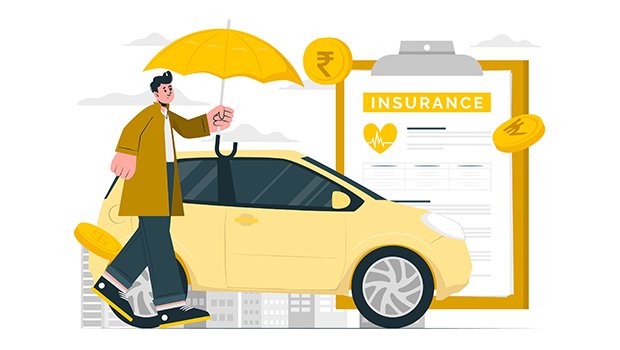Cheap vs. Comprehensive Car Insurance: Which Should You Choose?

Choosing the right car insurance isn’t just about saving money—it’s about finding the right balance between cost and coverage. Whether you’re tempted by low premiums or want full protection, understanding cheap car insurance vs comprehensive car insurance is essential. This guide explores both options, their pros and cons, and when each is most appropriate for drivers in the USA.
1. What Is Cheap Car Insurance?
Cheap car insurance typically refers to minimum liability coverage required by law. These policies cover only:
- Bodily injury liability: Injuries to others when you are at fault
- Property damage liability: Damage to someone else’s vehicle or property
They usually exclude collision coverage (damage from crashes) or comprehensive coverage (thefts, vandalism, weather damage).
Why It’s Affordable
- Lower premiums due to limited protection
- Often higher deductibles and lower payout limits RedditACKO+10Hollard+10PolicyHouse+10Gulf News+2Investopedia+2Wikipedia+2Policybazaar UAE+5Crispme+5Reddit+5
Risks of Going Cheap
- Inadequate coverage can leave you personally liable after an accident The Motley FoolInsurance Panda
- No compensation for non-collision events (theft, vandalism) alphacollisioncenter.comGulf News
- Potentially poor claims service The Motley Fool
2. What Is Comprehensive Car Insurance?
Comprehensive car insurance (often bundled with collision coverage) covers:
- Theft, vandalism, fire, natural disasters, hitting animals
- Damage to your vehicle in a crash—regardless of fault
- Optional benefits like roadside assistance and rental car coverage
Why It Costs More
- Broader coverage leads to higher premiums
- Deductibles are often applied before payout The Scottish Sun+15Investopedia+15The Sun+15Policybazaar UAE+2alphacollisioncenter.com+2Kwiksure+2
Benefits of Going Comprehensive
- Protects your own vehicle from a wide range of risks
- Often includes perks like breakdown cover and glass repair Hollard+15The Sun+15alphacollisioncenter.com+15
- Insurance companies may view these drivers as lower risk Investopedia+15The Sun+15Kwiksure+15
3. Comparing Cheap vs Comprehensive
| Feature | Cheap Insurance | Comprehensive Insurance |
|---|---|---|
| Coverage Scope | Minimal—only third-party liability | Broad—collision, theft, weather, and more |
| Premiums | Significantly lower | Higher due to expanded protection |
| Deductibles | Often higher (to offset low premium) | Set at purchase—often manageable |
| Claims Payout | No claim on own vehicle damages | Covers damages after deductible |
| Coverage Extras | None | Can include roadside, rental reimbursement |
| Risk Level | High personal liability if crash occurs | Better protection, potentially lower rates InsureMojo+5Kwiksure+5PolicyHouse+5The Scottish Sun+5Crispme+5Investopedia+5The Sun+10The Sun+10Gulf News+10Investopedia+2InsureMojo+2Investopedia+2The Sun+1ACKO+1 |
4. When Cheap Insurance Makes Sense
- Older or low-value vehicles
If repair costs exceed the car’s worth, skipping comprehensive makes financial sense PolicyHouse+1The Sun+1Policybazaar UAE+10Gulf News+10alphacollisioncenter.com+10. - Strict budget constraint
New drivers or those with tight budgets may start with liability-only, saving up for future upgrades PolicyHouse. - Reliable transportation fallback
If you have access to alternate transport (public transit, family car), the risk of being without a vehicle is lower Insurance PandaGulf News.
5. When Comprehensive Insurance Is Worth It
- New or financed vehicles
Lenders typically require full coverage until the loan is fully paid. - Living in high-risk areas
Places prone to theft, vandalism, or extreme weather benefit from comprehensive protection. - Low tolerance for out-of-pocket expenses
Even a minor hailstorm can cost thousands without the right coverage The Motley Fool+1Policybazaar UAE+1. - Peace of mind
Comprehensive policies often viewed as less risky, which may lead to lower premiums despite broader coverage Reddit+14The Sun+14Investopedia+14.
6. Smart Ways to Save on Both
- Increase your deductible: You’ll pay more if you claim, but save monthly Crispme+2InsureMojo+2Insurance Panda+2
- Enroll in usage-based programs (e.g., Snapshot, Drivewise) to earn discounts for safe driving InsureMojo+1Crispme+1
- Shop around annually: Rates fluctuate, so comparing quotes can save hundreds MoneyWeekInsureMojo
- Bundle policies: Combine auto with home or renters insurance to unlock multi-policy discounts InsureMojoCrispme
7. Real-World Insights
- Martin Lewis, finance expert, notes comprehensive policies can be cheaper than third-party ones, as insurers reward cautious drivers Gulf News+2The Sun+2MoneyWeek+2.
- Learned lessons: One study found liability-only drivers with limited coverage often need to pay out-of-pocket for incidents that comprehensive policies would have covered The Motley FoolInsurance Panda.
8. Making the Right Decision
To decide between cheap and comprehensive:
- Assess your vehicle’s value: Is it worth more than 5x a comprehensive deductible?
- Evaluate your risk exposure: Do you park in safe areas? Live in bad-weather zones?
- Consider your finances: Can you afford to repair or replace the car out-of-pocket?
- Compare insurance quotes including costs and available discounts.
- Reevaluate annually, especially after changes like new car purchase, move, or driving habits.
9. Further Reading
- Investopedia’s guide to comprehensive vs collision explains coverage details (investopedia.com) Crispme+7Policybazaar UAE+7Hollard+7Investopedia+1Reddit+1.
- UK’s Martin Lewis finds comprehensive may be cheaper due to incentive-based pricing (thesun) The Sun+1The Sun+1.
- Advisory articles on pitfalls of cheap policies highlight inadequate coverage consequences (fool.com) The Motley Fool.
10. Final Verdict
- Choose cheap (liability-only) insurance if you drive an old, inexpensive vehicle and are comfortable repairing or replacing it yourself.
- Opt for comprehensive coverage when you drive newer cars, face environmental risks, or want peace of mind—even if it costs more monthly.
Ultimately, inspect your car’s value, budget, and lifestyle—then choose coverage that protects your needs without overpaying.




